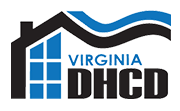2021 Virginia Codes effective Jan. 18, 2024
The effective date of the 2021 Uniform Statewide Building Code, 2021 Statewide Fire Prevention Code, 2021 Industrialized Building Safety Regulations and the 2021 Amusement Device Regulations is Jan. 18, 2024.
Complimentary ICC Digital Codes Premium subscriptions for Virginia Code Officials and Technical Assistants
DHCD will provide Virginia localities with complimentary subscriptions to the ICC Digital Codes Premium Complete for their code enforcement personnel. This six-year premium subscription provides access to over 800 of the latest codes and standards and access to all enhanced features of the ICC premium complete subscription.
Virginia’s state building codes and regulations are promulgated and regulated by the DHCD. Codes and regulations are adopted by the Board of Housing and Community Development and periodic amendments are utilized to update codes and incorporate new reference standards.
Virginia’s state building codes and regulations are administered through the Virginia Uniform Statewide Building Code (USBC), and its associated standards and regulations for industrialized or modular buildings, manufactured homes and amusement devices.
Effective January 18, 2024, Virginia adopted the 2021 I-codes as referenced in the Virginia Construction Part 1 and the 2021 Statewide Fire Prevention Code; and the 2020 National Electrical Code.
The Virginia Building Codes are updated through the code development process. Virginia is a leader in building and fire code development, and stakeholder input is vital to Virginia’s code development process. Participation is encouraged and remote participation is made possible through cdpVA.
For all technical memos and bulletins related to the Virginia Building and Fire Regulations, click here.
The Virginia Amusement Device Regulations (VADR) prescribes uniform statewide regulations to be complied with for the construction, maintenance, inspection, and operation of amusement devices, whether mobile or affixed to a site.
The State Building Code Technical Review Board (SBCTRB) consists of 14 citizens appointed by the Governor to ensure Virginia’s building code is administered fairly and well-understood by the citizens of Virginia.
The Jack A. Proctor Virginia Building Code Academy (VBCA) delivers administrative and technical code training programs for mandated certification requirements for over 3,500 statewide professional certifications in various code enforcement disciplines including code official, inspection and plan review.
Learn more about VBCA, including information on Jack A. Proctor and other helpful resources.
Find information and resources for earning a DHCD certification, maintaining a DHCD certification through continuing education and code change training and verifying an individual’s DHCD certification status
Learn about classroom training offered by the Code Academy for both in-person and live virtual courses, including course registration, tuition and fees, eligibility details, and access to many other helpful resources.
Learn about and access online self-paced training resources available through the Code Academy Learning Center.
The statewide levy (currently at 2 percent) upon all local permit fees issued in accordance with Virginia Uniform Statewide Building Code (VUSBC) is collected to support operations and programs of Virginia Building Code Academy for training and certification of local code enforcement personnel.
Manufactured homes, sometimes referred to as HUD code homes, are built, in a factory, on a permanent chassis, are transportable in one or more sections, are used as single family dwellings and may be sited with or without a permanent foundation.
The Virginia Department of Housing and Community Development (DHCD) regulates Virginia’s manufactured housing industry through the Virginia Manufactured Home Safety Regulations (MHSR) and the Virginia Manufactured Housing Licensing and Transaction Recovery Fund Regulations (MHLTRFR).
The Code of Virginia directs the Virginia Manufactured Housing Board to promulgate necessary regulations to carry out the provisions for licensing in the manufactured housing industry. The licenses in the program are required for manufactured housing manufacturers, dealers, brokers, and salespeople. For more information about licensing click here.
The Code of Virginia directs the Virginia Manufactured Housing Board to promulgate necessary regulations to carry out the provisions for licensing in the manufactured housing industry. The licenses in the program are required for manufactured housing manufacturers, dealers, brokers, and salespeople. The regulations include warranty requirements, consumer complaint resolution procedures, restrictions on advertising practices, and provisions for dealer/manufacturer sales agreements. As provided for in the Code of Virginia, the regulations also establish a Transaction Recovery Fund and the administrative procedures to carry out this consumer protection program, including procedures for filing claims, hearings or conferences, payment of claims for damages, and possible disciplinary actions against license holders in the program. The Board is authorized to make case decisions to carry out the provisions of this program.


